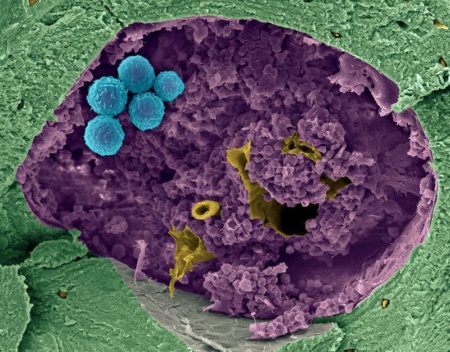December 3, 2019 – New laboratory studies and human clinical trials are opening up a new frontier in medical treatment of immune system disorders, blood-based cancers, and genetic diseases. At a meeting this week of the American Society of Hematology in Orlando, Florida, the latest study in the use of blood stem cells is being presented.
Stem cells derived from bone marrow produce the cellular components of blood. Hence they are called blood stem cells. The treatment that is being described at the Orlando meeting is blood stem-cell transplants. What’s involved?
Defective blood-making cells are identified and eradicated. They are then replaced by healthy ones harvested from donors or patients themselves. The transplanted cells take hold and differentiate into the components that make up healthy blood.
How does this differ from current practices?
Today’s medical standard is to irradiate or treat with chemotherapy drugs a person suffering from one of these diseases. This kills off the patient’s existing blood stem cells and a host of other cells in the bone marrow. The side effects of this type of treatment can compromise the immune system, cause infertility, and seed cancers that show up later in the patient’s life.
In an article appearing in Nature on November 29, 2019, author Heidi Ledford uses the analogy of a hotel where the old treatment requires all guests to leave, versus the new one which targets specific guests only.
Two biopharmaceutical companies, Forty Seven and Magenta Therapeutics are doing clinical research targeting the blood stem cell molecule, c-Kit. c-Kit is a protein found on the surface of cells that binds to stem cell factor, responsible for the growth of certain types of blood cells. c-Kit is associated with a particular protein tied to the CD47 gene. Inhibiting this CD47 protein boosts c-Kit’s effectiveness in targeting blood stem cells containing the protein, killing them. This allows transplanted healthy blood stem cells introduced into the bone marrow to thrive and unlike chemotherapy or irradiation does not as a consequence destroy the immune system.
At Stanford University associated with the biopharmaceutical company, Amgen, other research is looking at CD117, another antibody that effects c-Kit. Using donor blood stem cells in a limited clinical trial involving six babies, four were effectively treated for a genetic immune system disorder.
European researchers have also been testing the technique on an immune disorder called Adenosine deaminase deficiency (ADA) a genetic condition that causes Severe Combined Immunodeficiency (SCID). People with this genetic disorder cannot fight off most infections. By genetically modifying removed blood stem cells and reintroducing healthy replacements, the research shows promise in treating the condition. It may also help in tackling diseases like beta-thalassemia, sickle-cell disease, type 1 diabetes, and systemic scleroderma.
What is happening to the body with these blood stem cell treatments? It is believed that introducing healthy blood stem cells in these various procedures is helping to reset the body’s immune system and may soon become a new protocol in dealing with blood and immune disorders.









